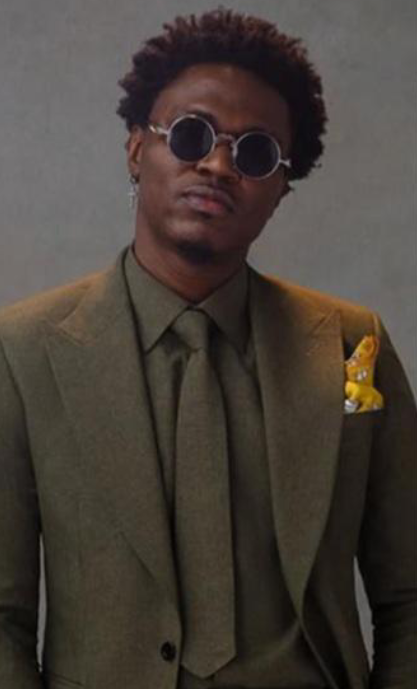
“Can We Speak for Justice?”: Spyro Calls Out Nigeria’s Distraction Amid Kebbi School Abductions

In a nation that has become all too familiar with headlines of violence and insecurity, the latest tragedy in Kebbi State has once again stirred pain, anger, and frustration. Twenty-five young girls were reportedly abducted from their school, a horrifying reminder of the persistent threats to children’s safety and education across Nigeria. Yet, instead of dominating national discourse, this grave incident has, in part, been overshadowed by viral social media feuds and trivial arguments. It is precisely this imbalance that Nigerian singer Spyro chose to confront in a series of heartfelt posts, calling the nation to pause its distractions and speak for justice.
“Can we set aside distractions at this moment and speak for justice?” Spyro asked in a post that immediately resonated with thousands across social media. In a world where breaking news often competes with entertainment scandals and trending hashtags, his plea is both stark and necessary. The singer expressed his dismay at how public outrage has been scattered, noting that the abduction of 25 teenagers—a tragedy that should shake the conscience of every Nigerian—was being largely ignored in favor of more frivolous debates.
Spyro’s posts reflected a deep sense of frustration with the national mindset. “25 young girls have been kidnapped in their school in a state and yet there is more conversation about ‘A FIGHT’ than the abduction of 25 teenagers. Wow. Who has bewitched us as a nation? How long before this touches everyone?” he wrote. His words, raw and piercing, capture the pain of a society that has grown almost desensitized to repeated acts of violence and insecurity. The singer went further, stating, “The day we wake up is the day we get freedom,” a sentiment that echoes not just the plight of the girls and their families but the larger struggle for national consciousness, empathy, and action.
The abduction of schoolchildren in Nigeria is, tragically, not new. In recent years, numerous cases—from Chibok to Dapchi and beyond—have highlighted a worrying pattern: attacks on schools and students have become tools of terror, creating fear, disrupting education, and undermining the sense of security in communities. Yet despite the recurring nature of such incidents, national attention often flickers briefly before moving on to less pressing matters. Spyro’s outcry, therefore, is not just about Kebbi; it is a call to resist distraction, to prioritize justice and human life over entertainment or divisive arguments.
His posts also highlighted a broader societal problem—the normalization of distraction and selective outrage. In his words, “Breaks my heart to see how distracted we are as a people. Can we please set aside distractions at this moment and speak for JUSTICE #FREEOURGIRLS.” By tagging #FREEOURGIRLS, Spyro aligns himself with a movement that gained international recognition during the Chibok abductions, reminding Nigerians and the world that the fight against kidnapping and insecurity is far from over. It is a plea to citizens, media, and government authorities alike to redirect attention, mobilize action, and ensure that victims and their families are not forgotten amidst the noise of everyday discourse.
The emotional weight of Spyro’s message lies in its unflinching honesty. He does not mince words, and he does not shy away from calling out the apathy that has taken root in public conversations. By highlighting the discrepancy between attention to viral arguments and the neglect of real-life tragedies, Spyro forces a confrontation with uncomfortable truths about societal priorities. His words suggest that the real crisis is not only the abduction itself but also the collective indifference that allows such tragedies to fade into the background while social media feuds or celebrity news dominate timelines.
Beyond social media commentary, the Kebbi abductions also raise urgent questions about governance, security, and accountability. How can citizens be expected to speak for justice when systems meant to protect them fail repeatedly? Spyro’s plea, though directed at public consciousness, implicitly challenges leaders and policymakers to step up and demonstrate that children’s safety is paramount. It is a reminder that justice is not only a matter of emotional support or hashtags but requires concrete actions—strengthening school security, deploying responsive law enforcement, and creating mechanisms to prevent future kidnappings.
The singer’s emotional transparency and public visibility make his intervention particularly powerful. Unlike anonymous commentary, Spyro’s platform reaches millions, creating space for dialogue and awareness that might otherwise be lost. By expressing personal heartbreak and societal concern, he models a type of engagement that blends empathy with advocacy, inspiring others to consider their own role in demanding justice. His posts are a clarion call for attention, not just for the immediate victims, but for a larger reckoning with the culture of distraction that hampers collective action.
It is impossible to overstate the significance of public figures using their platforms responsibly in moments of crisis. Spyro’s approach underscores the influence artists, musicians, and other cultural icons wield in shaping discourse, framing priorities, and keeping human tragedies visible. His reminder that freedom and justice are intertwined with awareness is a sobering reflection on the work still needed to protect the vulnerable and mobilize communities. The stark contrast he draws between fleeting interest in trivial matters and the urgent need for action compels society to ask itself: what kind of nation are we becoming when the lives of children are secondary to entertainment or viral quarrels?
Spyro’s posts resonate because they touch on a universal frustration—the feeling that, as a nation, Nigerians have been repeatedly confronted with crises and yet fail to unify in response. Each act of distraction, each diverted attention, contributes to a cycle of inaction, leaving victims to bear the brunt of systemic neglect. His words, raw and urgent, are a reminder that awareness is the first step toward meaningful change. To speak for justice is not simply to comment online but to demand accountability, support rescue efforts, and ensure that tragedies like the Kebbi abduction do not fade into forgotten headlines.
As the nation grapples with yet another heart-wrenching incident, Spyro’s message echoes loudly: the time for distraction is over. Children’s lives, their education, and their future cannot wait for social media storms to pass. Citizens, influencers, and leaders alike are called upon to confront apathy, to prioritize empathy over entertainment, and to ensure that justice is not an afterthought but an urgent, collective pursuit. The abduction of 25 young girls in Kebbi is more than a statistic—it is a reflection of societal neglect, systemic insecurity, and the moral responsibility of every Nigerian to speak up, act, and demand change.
In a world saturated with noise, Spyro’s plea is simple yet profound: set aside distractions, speak for justice, and remember the humanity at the heart of every tragedy. For these girls, for every child in harm’s way, and for a nation grappling with recurring crises, it is a message that cannot be ignored. The question he leaves for society is not rhetorical: can Nigerians truly rise above distraction and speak for justice, or will the cries of the vulnerable continue to be drowned out by the trivialities of daily discourse? The answer, as Spyro suggests, may determine not only the fate of the victims but the moral direction of the nation itself.


